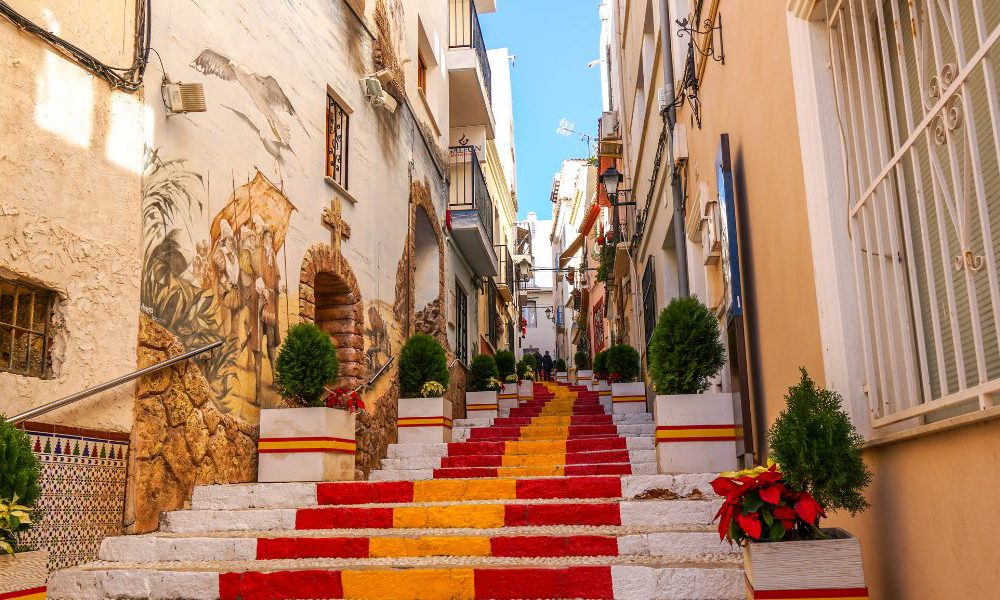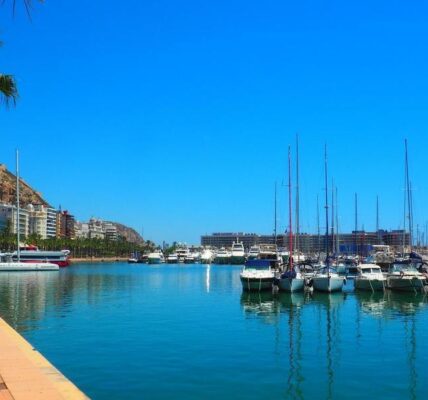The first steps to making a successful move to Spain involve making lots of notes to determine precisely what you want in your new home. All you need is a blank word processing doc on your computer or get a pen and pad and start writing!
List Your Whys
Write down why you want to move.
Common reasons for moving to Spain include:
- Desiring an improved quality of life.
- Needing more living space without a huge mortgage.
- Getting away from the awful UK weather.
- Simply living a life with less stress.
- Perhaps you have a young family and are worried about the UK drug culture, city crime and gangs.
If you are planning to buy a holiday home, your reasons include having an idyllic place to go to when you want without the expense of hotel accommodation several times a year. You may want a second home to let out during the high season to help cover your holiday and property maintenance costs. Either way, writing down your reasons is an excellent place to start and therefore remind yourself from time to time why you are doing this.
Area
When you have a general idea of what you wish to experience when you move to Spain, the next essential step is the all-important one – choosing the area where you will live. Spain is a vast country, and regions differ dramatically.
The northern part of Spain, which includes Santander and Galicia, is very wet, with a lush green landscape similar to Ireland due to the amount of rainfall it receives. Whereas in the south, it can get scorching in the summertime and might not be the best option if you are sensitive to heat or are taking an elderly relative with you.
The most popular areas for expats in Spain are the Costas del Sol and the Costa Blanca. The Costa Blanca has an idyllic climate for most of the year, and a booming tourist trade, which affords work opportunities. It also offers relatively cheap property prices and excellent transport links nationally and internationally.
One of the downsides depending on your personal preferences, maybe there are too many expats and tourists on these two stretches of coast, and it isn’t easy to get a feel of the real Spain if this is what you are searching for.
Do your homework carefully before choosing an area, and make sure you visit in both low and high seasons before making a final choice.
Property
Once you have chosen an area, the next step is to decide what your perfect home in Spain would be. This will depend very much on your circumstances. For example, a massive villa with extensive gardens and multiple rooms is probably not the ideal home if you are alone or a couple. Spending a lot of time maintaining a property where you only utilise a quarter of the space isn’t the best way to spend your time. So think about if you would really use a swimming pool with a large terrace or barbecue and if you really need four bedrooms and three bathrooms.
If the answer is no, but you plan to rent the property for part of the year, these are assets you will want to have, as you can ask for higher rents. However, if renting is not in your plans, like many others, you will find little need for a private pool and large garden when you move to Spain.
A word on renting: Recently, local authorities have been cracking down on the permits given to property owners to allow them to rent the property. Before buying, always check with your agent if this is the case in your area. A reputable agent will be able to advise on how to proceed.
Location
The location of your property is critical. You might not drive or are not planning to buy a car when you move to Spain, and it is important your new home is within easy walking distance of local shops and other amenities. Make sure there are good public transport services in the area and gather your information from various resources rather than relying on a single article or website.
Resources
Online forums and expat Facebook groups are resources for information and reading posts from others who have already made a move will give you a good idea about the positives and negatives of living in an area.
You will find that red tape and bureaucracy complaints are abundant, whereas, on the other hand, you’ll also find that excellent health service and education receive much praise.
Another way to increase your knowledge before making a concrete move is to visit an overseas property exhibition in the UK. This allows you to speak with those in the know who can answer your many queries.
Write down any questions you have as they come to you, as eventually, you will want answers to these from those living in your chosen area or an experienced property agent when you finally make your first definite step.
Buying in Spain – The All-Important Financial Factors
Whether you are looking for a budget property below 100K or leaning towards a high-end villa costing over 500,000K buying in Spain, or indeed in any other country, it is nothing short of a huge decision, and therefore not an issue to take lightly.
Before taking any steps towards buying a property, you must work out your finances. You must decide how much money you intend to spend and where it will come from. Will it involve either selling or re-mortgaging your UK property, or are you selling other assets to raise the necessary amount?
When purchasing any property, it’s crucial to consider all the costs involved in addition to the purchase price. If you do not have a firm grasp on how much money you have available or know at which stage of the buying process you must release the funds, you might get attached to a property that, realistically, you are not financially in a position to buy.
Therefore, making a financial plan is the most important step on the path to buying your dream Spanish home without unexpected problems.
Determine Your Budget
Once you have worked out exactly how much you have to spend on your new home, you can eliminate any properties you will not be able to afford. This lessens the chance of becoming emotionally attached to a home you can’t realistically afford. To determine the average price of properties, visit estate agency sites.
Make a note of the following important financial points:
- How much money do you have available in hard cash to use towards the purchase.
- Find out how much of a deposit you will need, and work out the monthly payments if you need a mortgage.
- Decide whether you will re-mortgage your UK home to release equity.
- Add up all fees and taxes you, as the buyer, are liable to pay.
- Determine the maximum price you can pay for the property, fees and taxes included.
- Add up the overall cost of maintaining the property per annum.
- Estimate how much it will cost to spend time in your new home if you are not moving permanently.
Additional Costs
There are further costs apart from the purchase price of a property in Spain. These costs depend on a few varied factors:
- Whether the property is a new build or a resale
- The purchase price of the home
- Whether you are buying the property with a mortgage
- As a rule of thumb, allow approximately 10% to 12% of the total purchase price to cover all necessary fees and taxes. So if you are buying a house for 150,000€ budget for an extra 16,000€ for fees.
- The fees and taxes incurred when buying include the following:
- Transferring tax for a resale home
- ITP – Levied at 8% across Spain, will need to be paid. (ITP is levied at 10% in the Costa Blanca region)
- Notary fees- approximately 400€ to 900€
- Land Registry fees – roughly half of the cost of the notary fees
- Fees for independent lawyers, usually between 1,000€ and 2,000€
- If you are buying a property with a mortgage, you will be charged valuation fees of approximately 350€
- Stamp duty – approx. 1.5% of the mortgage deeds, and a lender’s commission, which generally around 1% of the capital loans
- If the property is a new build, you will need to pay VAT of 10% rather than an ITP
- On new builds, 1.5% of the total purchase price will go on stamp duty.
If this list overwhelms you, do not worry, as your estate agent and lawyer are used to dealing with property sales and will take care of the paperwork on your behalf. All you need to do is know exactly where the money will come from and how much you can afford, and you will be one step closer to acquiring your dream Spanish property!










